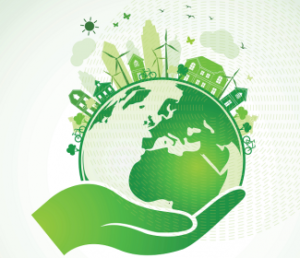In the venture capital industry, Unicorn’s term is used to describe a startup company with a value of over $1 billion. There are more than 600 unicorn companies around the world, as of April 20211. Getting to a billion-dollar valuation is not easy and that too when the market is going through a funding crunch during the time of Pandemic worldwide. These newly-crowned Indian unicorns definitely deserve a big round of applause. With 39 unicorns, India ranks 3rd in the total number of unicorns globally. India added 2nd highest number of unicorns in 2020 after the USA. But everyone must be wondering what makes India a hub of unicorns and its record-breaking creation of unicorns every year. As a matter of pride, we can give the credit of this big achievement to India’s changing reforms and policies towards start-ups. In the recent past, various initiatives taken by the government have also favored the Indian start-ups to scale. The most important factor is the zeal of young Indian entrepreneur’s to expand and grow.
By end of 2021, India will be into the 50+ strong Unicorn club. The past record shows that 30 of 38 active Indian Unicorns achieved a $1Bn+ valuation in the last 3 years only. It is a very positive signal for the possibilities of entering new companies into the Unicorn club. We have a pipeline of start-ups with more than $50Mn+ in cumulative funding which is at an all-time high. Even in 2020 majority of those startups reported growth, with a few already marked $1Bn+ valuations in secondary markets. As per the forecast of the industry experts, India is going to add at least 9 to 11 Unicorns in the calendar year 2021 or even more.
Every budding entrepreneur should know some interesting facts about these Unicorns:
- The Average time for a start-up to turn unicorns in India is 7-8 years which is at par with the global standards but China leads by having an average time to unicorns of 5-7 years followed by the USA with an average time of 6-8 years.
- 50% of Indian Unicorns already have a Global market reach. These numbers clearly show the scalability which overseas market has given to Indian start-ups to turn them unicorns.
- The Indian startup ecosystem has many Unicorns in the pipeline. There are 55+ start-ups with more than $50 million in total funding out of which 23 start-ups have raised over $100 million in funding deals.
- Start-ups in India are showcasing vast diversifications from various sectors like – Automotive, EdTech, Advertising & Marketing Tech, SaaS, SCM & Logistics & Food Tec.
- One-third of Unicorns added in 2020 are based out of Hyderabad, Pune, Chennai
The New 13 Indian entrants in the list of Unicorn clubs in 2021 are; Zeta, Moglix, Urban Company, ChargeBee, Gupshup, ShareChat, Groww, Pharmeasy, Cred, Meesho, Infra.Market, Innovaccer, and Digit Insurance
The prominent Investors in these Unicorns are; Accel India, Jungle Ventures, Tiger Global, Sequoia Capital India, IFC, Steadview Capital, Elevation Capital, Vy Capital, Sapphire Ventures, Insight Venture Partners, Charles River Ventures, Helion Ventures, India Quotient, Elevation Capital, Lightspeed Ventures, Twitter, Y Combinator, Ribbit Capital, Orios VP, Eight Roads Ventures, Temasek, Naspers, DST Global, Falcon Edge Capital, Elevation Capital, SoftBank, Naspers are the prominent investors in new Unicorns.
Source and references:
- Nasscom startup report
- Credit Suisse Report



